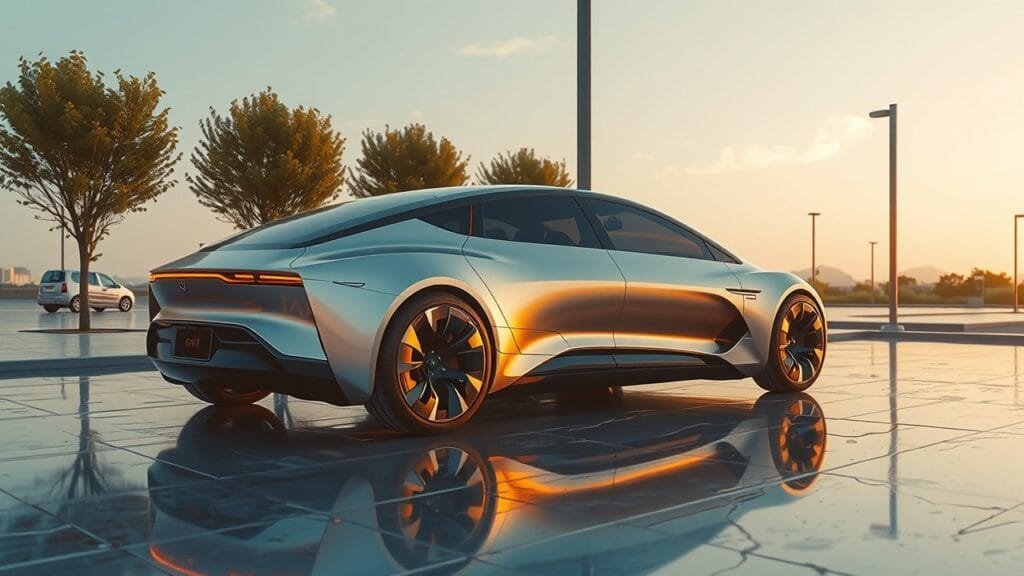You’ll Never Believe the Amazing Cost to Renew My Electric Car Insurance – Part 3

In recent years, the electric car industry has witnessed tremendous growth, with governments and environmental advocates pushing for cleaner, greener transportation. However, while electric vehicles (EVs) have undeniable advantages, there are challenges involved that prospective buyers should consider, including maintenance, charging expenses, and especially insurance costs. This article dives into one electric car owner’s experience with EV insurance renewal, exploring how insurance rates are determined for electric vehicles, why they tend to be higher than those for petrol or diesel vehicles, and what this means for the future of electric car ownership.
Why Electric Car Insurance Costs are So High
Many EV owners are stunned by the steep costs when it comes time to renew their insurance. Electric car insurance is significantly higher than that of internal combustion engine (ICE) vehicles, and this is due to several reasons:
- Repair Costs: EVs, particularly high-end models like the Porsche Taycan, often require specialized parts and repairs. Electric vehicle batteries, for instance, are incredibly expensive to replace or repair, driving up insurance premiums.
- Limited Repair Network: Not every mechanic or repair shop is equipped to handle EVs, which means insurance providers may pay more for repairs due to a limited pool of service providers.
- High Initial Value and Depreciation: High-value cars naturally come with higher insurance rates, and the depreciation rates on EVs can be steep, making insurance providers cautious about covering the loss.
According to a recent Auto Express article, the average insurance quote for an electric vehicle has risen by an astounding 72% over the past year. Family SUVs can have insurance premiums as high as £9,000—costs that rival or exceed those for some luxury petrol vehicles. This sharp increase reflects the rising risks associated with EV ownership, from repair costs to the possibility of battery replacement.
The “Credit Loan” Phenomenon with Charging Providers

One issue that’s come up for many EV owners is how charging providers handle payment authorizations. Some providers, like Instavolt, will put a substantial hold on a customer’s credit or debit card—sometimes upwards of £45—to initiate a charge. After completing a £20 charge, for example, the excess funds are often held by the company for a few days before being refunded.
While this hold is a standard security measure, it’s frustrating for EV owners who feel they are essentially giving a “free loan” to the charging company for a few days. Multiply this by thousands of customers per day, and these companies are sitting on a significant amount of unreturned funds temporarily. Given the rising costs of EV charging, this waiting period can feel unfair, as customers often feel that their money is “held hostage.”
The Author’s Experience with EV Charging and Insurance Costs
As an EV enthusiast with a Porsche Taycan, I’ve experienced firsthand the expenses tied to both charging and insurance. Charging a Taycan can cost up to 85p per kilowatt-hour (kWh) at high-end charging stations like Instavolt. On a recent trip to Instavolt, for instance, I was charged £18.50 for a full charge, with a £45 authorization held on my card. Waiting several days to have the difference refunded was both inconvenient and frustrating, especially as it felt like my funds were being used as a no-interest loan to the charging company.
When it came time to renew my insurance, I was bracing myself for an increase. Last year, I paid £593.59 for comprehensive coverage with a £2,000 excess. This year, the renewal quote came back at £1,081—a sharp jump despite my no-claims status. By calling my insurer and explaining my situation (and mentioning that I’d added home insurance with them), I managed to negotiate a slightly reduced rate, but it was still an eye-opener on just how much electric car insurance can cost.
Why Electric Cars Are Not the Affordable Option We Thought
There’s an ongoing debate among EV owners and enthusiasts about whether electric cars really save money. The argument was once that, while EVs had a high initial cost, the long-term savings on fuel, tax breaks, and lower maintenance costs would offset the investment. But with high insurance premiums and rising charging costs, the financial benefits of owning an EV have become less clear.
Consider the following factors:
- Depreciation: EVs often depreciate faster than traditional vehicles. Some owners, like a friend with a Porsche Taycan Turbo S, have even found themselves in “negative equity” on their vehicles, where the value of the car is significantly lower than what they owe on it.
- Charging Costs: Charging costs can vary widely depending on the provider. While some options like Ionity (subsidized by Porsche) offer a more affordable charging experience, high-end options can cost as much or more than fueling a petrol car, especially for drivers without access to home charging.
- Insurance Costs: As discussed, EV insurance premiums are disproportionately high, with average increases of over 70% in recent years, according to Confused.com. With fewer insurers willing to cover EVs, owners may have to shop around extensively to find reasonable rates.
Are Insurers Discouraging EV Adoption?
Another key question is whether insurance companies are intentionally pricing policies high to discourage EV adoption. Insurers argue that the premiums reflect the actual costs of insuring an electric vehicle, from repair expenses to battery replacement. However, it’s worth noting that some major providers have temporarily stopped issuing policies for EVs, citing concerns about claim costs. This hesitation could be sending a message that insurance companies are not yet prepared to cover the growing electric vehicle market.
How to Save on Electric Car Insurance
For those committed to the electric vehicle lifestyle, here are a few tips to manage high insurance premiums:
- Bundle Policies: Bundling home and car insurance with one provider may allow for discounts, as some insurers offer loyalty benefits.
- Increase Your Excess: Higher excess can reduce premiums, but be sure to set an excess amount you’re prepared to pay out of pocket if needed.
- Choose a Lower-Value Vehicle: While luxury EVs are appealing, their insurance premiums are much higher than more affordable electric options.
- Shop Around: As EV insurance becomes more competitive, comparison sites and direct quotes from insurers can yield savings.
The Future of Electric Vehicle Insurance
The high cost of insuring electric vehicles is one hurdle among many facing prospective EV owners. As the market grows, insurers will likely refine their coverage options and hopefully bring premiums more in line with those for traditional vehicles. However, in the meantime, EV owners may need to prepare for higher insurance bills and rising charging costs.
As the industry evolves, the hope is that electric cars will eventually become as affordable to insure as they are to operate, aligning with the broader vision of a sustainable, accessible future for all drivers.
Related Links:
- To explore EV insurance options, consider checking Confused.com, which provides EV insurance quotes across major providers.
- For more information on electric vehicle insurance and related topics, visit Auto Express.
In conclusion, while owning an electric vehicle offers environmental benefits, the financial costs may come as a surprise to many. From high charging fees and hold authorizations on credit cards to skyrocketing insurance premiums, the expenses add up quickly. However, with a bit of research and comparison, you can find ways to manage these costs and make the most of your electric car experience.
https://mobatu.site/cheap-cost-to-renew-my-electric-car-insurance-part-2/


